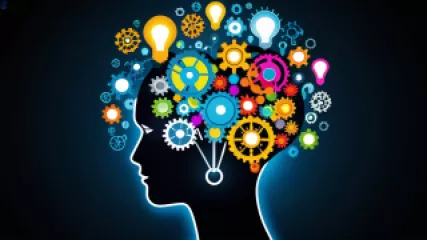Mastering Memory: The Ultimate Guide to Cognitive Performance Enhancement
Welcome to "Mastering Memory: The Ultimate Guide to Cognitive Performance Enhancement." In this comprehensive guide, we will explore a variety of memory improvement techniques and strategies that can help you enhance your cognitive performance and optimize your mental wellness. Whether you are a student looking to improve your study skills, a professional seeking to boost your productivity, or simply someone who wants to sharpen their memory, this guide is designed to provide you with the knowledge and tools to achieve your goals.
Why is Memory Important?
Memory plays a crucial role in our daily lives. It allows us to retain information, recall past experiences, and make informed decisions based on our previous knowledge. A well-functioning memory is essential for learning, problem-solving, and overall cognitive functioning.
Unfortunately, many people struggle with memory lapses, forgetfulness, and difficulty retaining information. The good news is that memory is not a fixed ability, but rather a skill that can be improved with practice and the right techniques.
Understanding How Memory Works
Before diving into memory improvement techniques, it's important to understand the basics of how memory works. Memory can be divided into three main processes: encoding, storage, and retrieval.
Encoding: This process involves converting information into a format that can be stored in the brain. Effective encoding techniques can help improve memory retention.
Storage: Once information is encoded, it is stored in different areas of the brain for later retrieval. Strengthening the storage process can enhance long-term memory.
Retrieval: This process involves accessing stored information when needed. Improving retrieval cues and techniques can aid in faster and more accurate recall.
Memory Improvement Techniques
Now that we have a basic understanding of how memory works, let's explore some effective memory improvement techniques:
1. Mnemonic Devices
Mnemonic devices are memory aids that help us remember information by associating it with something easier to recall. Some popular mnemonic techniques include:
- Acronyms: Creating a word or phrase using the first letters of a list you want to remember.
- Visual Imagery: Creating vivid mental images to associate with the information you want to remember.
- Method of Loci: Associating each piece of information with a specific location in a familiar place.
2. Chunking
Chunking involves organizing information into smaller, meaningful groups or "chunks." By breaking down large amounts of information into manageable chunks, it becomes easier for our brains to process and remember.
For example, instead of trying to remember a long string of numbers like "1234567890," you can chunk them into smaller groups like "123-456-7890," which is easier to remember.
3. Spaced Repetition
Spaced repetition is a technique that involves reviewing information at increasing intervals over time. Instead of cramming all the material in one study session, spaced repetition helps reinforce memory by spacing out review sessions.
By reviewing information at strategic intervals, your brain has time to consolidate the information and strengthen the neural connections associated with that knowledge.
4. Mindful Learning
Mindful learning involves being fully present and engaged when acquiring new information. By paying close attention to what you are learning, you can improve encoding and enhance memory retention.
Some tips for mindful learning include eliminating distractions, taking breaks when needed, and actively engaging with the material through note-taking or discussion.
5. Physical Exercise
Physical exercise has been shown to have numerous benefits for brain health, including memory improvement. Engaging in regular aerobic exercise can enhance cognitive function and promote the growth of new neurons in the hippocampus, a brain region crucial for memory.
Consider incorporating activities like brisk walking, swimming, or dancing into your routine to reap the cognitive benefits of exercise.
Maintaining a Healthy Lifestyle for Optimal Memory
While implementing specific memory improvement techniques is valuable, it's important to remember that memory is influenced by various factors, including overall lifestyle and well-being. Here are some additional tips to support optimal memory function:
1. Get Adequate Sleep
Sleep plays a critical role in memory consolidation. Aim for 7-9 hours of quality sleep each night to enhance your memory and overall cognitive performance.
2. Manage Stress
Chronic stress can impair memory and cognitive function. Practice stress management techniques such as meditation, deep breathing exercises, or engaging in hobbies to reduce stress levels and support memory function.
3. Follow a Balanced Diet
A well-balanced diet rich in fruits, vegetables, whole grains, lean proteins, and healthy fats provides essential nutrients for brain health. Certain foods, such as blueberries, walnuts, and fatty fish, have been linked to improved memory and cognitive function.
4. Stay Mentally Active
Engaging in mentally stimulating activities can help keep your brain sharp and improve memory. Activities like puzzles, reading, learning a new skill, or playing musical instruments are excellent ways to challenge your brain and enhance cognitive performance.
5. Socialize and Stay Connected
Maintaining social connections and engaging in meaningful relationships has been associated with better memory and cognitive function. Make time for social activities, connect with loved ones, and participate in community events to support your mental wellness.
In conclusion, memory improvement techniques can significantly enhance cognitive performance and contribute to overall mental wellness. By incorporating mnemonic devices, chunking, spaced repetition, mindful learning, and other strategies into your daily routine, you can optimize your memory skills and unlock your full cognitive potential. Remember to also maintain a healthy lifestyle by getting adequate sleep, managing stress, following a balanced diet, staying mentally active, and nurturing social connections. With dedication and practice, you can master your memory and reap the rewards in various areas of your life.






